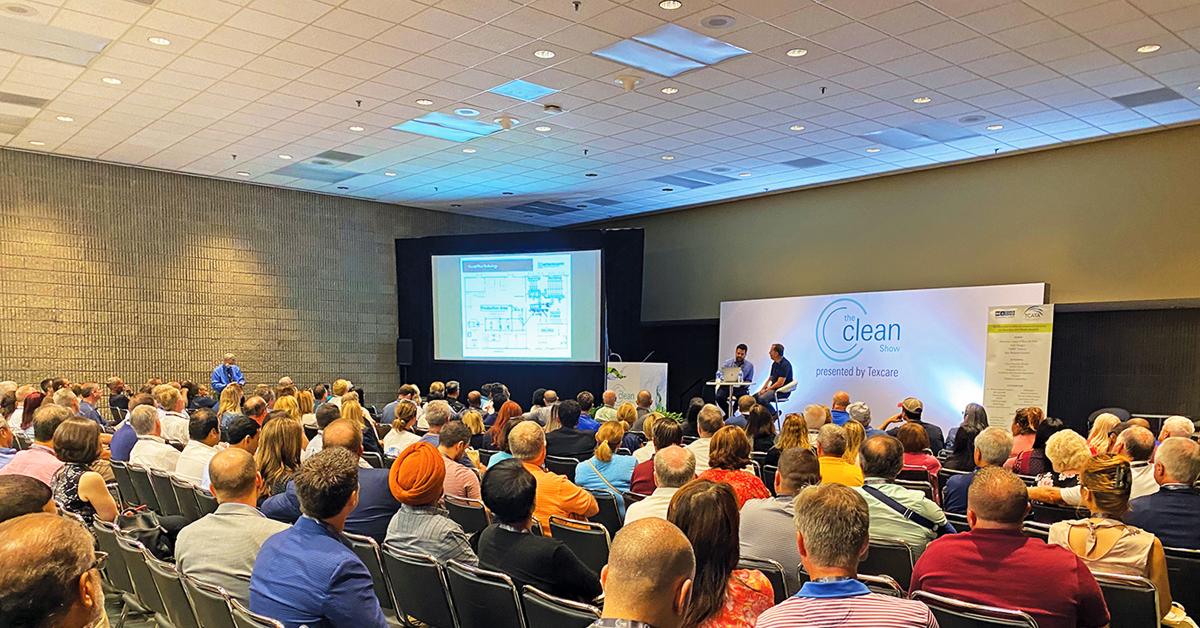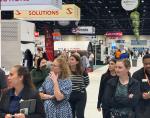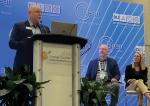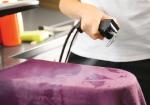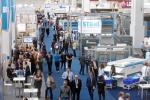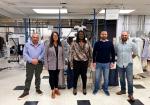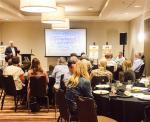ATLANTA — Dry cleaners and other textile care professionals recently convened in Atlanta for the Clean Show, coming together to network, take advantage of educational opportunities and see the latest technology in the field in action. Delayed by a year for the pandemic, there was energy on the floor and the desire to make up for lost time.
The show, held from July 30 through August 2, was organized by Messe Frankfurt and produced in collaboration with five industry associations — Association for Linen Management (ALM), Coin Laundry Association (CLA), Drycleaning & Laundry Institute (DLI), Textile Care Allied Trades Association (TCATA), and TRSA, the association for linen, uniform and facility services. This year’s event brought 347 exhibitors covering 216,400 square feet of the Georgia World Congress Center with the latest technology, products and services for dry cleaners and other textile care operations.
In Part 1, we looked at some of the reactions Clean Show attendees had as they hit the floor for the event, and today we'll examine some of the educational opportunities provided by industry professionals.
Learning Opportunities
In addition to networking and seeing equipment in action, some of the biggest draws to an event like the Clean Show are the educational sessions available to attendees, and the 2022 event offered plenty of chances for drycleaning and other textile care professionals to come away with valuable information.
Drycleaning-centric sessions were sponsored by DLI and covered topics designed to help business owners make the most of the opportunities available to them. Most of the sessions during this year’s show were filled or were close to capacity with attendees looking for tips to move their businesses forward.
Building a Better Culture — An opening session, “Best Culture Wins,” was presented by Sean Abbas, president and owner of Threads Inc., a software company that helps organizations review and establish core values and manage the performance of their teams.
A 25-year business veteran, Abbas shared his own struggles with improving the culture at a company he led before co-founding Threads.
Rather than spending money on one-time events and looking for magic bullets to solve culture issues, Abbas urges business owners to pay attention to their employees’ attitudes and what they are saying. Phrases like “This place doesn’t feel like it used to,” or “We don’t feel like family anymore” are warning signs of a culture in decline.
“Your employees would actually like to talk to you,” Abbas says. “They want to engage with you, if you’re willing to take the time and make the effort to do so.”
Looking for areas of stress that might be dragging your team down is also a simple way of maintaining morale at your company. Abbas recounted his experience with an employee who was amazing at performing the duties of his job — his performance evaluation reflected this — but was terrible to the people around him, to the point that turnover in that department was high. Once this dichotomy between performance and behavior came to light — and the employee was told that this was no longer acceptable — the employee left the company, raging all the way out the door.
“That was a brutal moment in my career,” Abbas says, “but when he left, the employees knew immediately that something was different. Turnover completely stopped.” Taking this as a sign, Abbas looked at his staff through a new lens and reevaluated his entire team. “Our turnover for our 115-member staff became less than 2% annually.”
Automation Case Study — Also included in the first day’s offerings was “Self-Service Technology is Here,” presented by Nathanial Dubasik and Frank Dubasik of Metalprogetti, an Italian-based company that specializes in automation solutions for the drycleaning industry.
In order to display the tools the company provides, Frank Dubasik, the director of U.S. operations for Metalprogetti – USA, explains that they wanted to create a “laboratory,” where the company’s products would be on display in a working drycleaning facility. They got their chance when the owner of Burke Cleaners serving the Fort Collins, Colorado, area retired. Partnering with a cleaner to operate the company, they went to work updating and automating the drycleaning company.
“One of the things as a manufacturer that is difficult is you’re out there, you’re buying our product, and sometimes you sometimes don’t tell us the issues that you’re facing,” Frank Dubasik says to dry cleaners. “Maybe you don’t even know some of the weaknesses of the system — you create workarounds. So now we have a place where we can really begin to learn our product. This is an opportunity for us to create a case study where we take an operation and bring in technology.”
As Burke Cleaners transformed, Frank Dubasik and Nathanial Dubasik, Metalprogetti USA’s sales and support manager, saw the drycleaning business from the other side of the counter, and took away some key points from that experience.
“Using technology, you can redirect your customers’ behaviors and transform your business,” Nathanial Dubasik says. “We found that customers are ready for change, technology can benefit every location, and there are a lot of benefits to offering a 24/7 solution.”
The New Workforce — Cleaners wanting to learn about getting the best from their younger team members were able to take advantage of the session, “Attracting and Managing the New Generation of Workforce,” presented by Jennifer Whitmarsh, a consultant with The Route Pros.
In 2019, according to the Pew Research Center, millennials overtook baby boomers as America’s largest generation. Employers who are not willing to adapt to the needs — and demands — of this generation, Whitmarsh says, are going to be in a constant state of filling positions as employees leave.
Whitmarsh explored the potential pitfalls that millennials may bring with them — a lack of focus, expecting too many perks, and others — along with ways to counterbalance these possible drawbacks. She also spoke about the strength this generation can bring to a business — they’re often well-educated, they think about the future, and they are comfortable with technology.
As with Abbas, Whitmarsh believes that building the right culture can keep valuable team members in place — something that has taken on greater importance in a tight labor market.
Come back Tuesday when we’ll look at other educational opportunities that were available During Clean Show 2022. For Part 1 of this series, click HERE.
Have a question or comment? E-mail our editor Dave Davis at [email protected].

